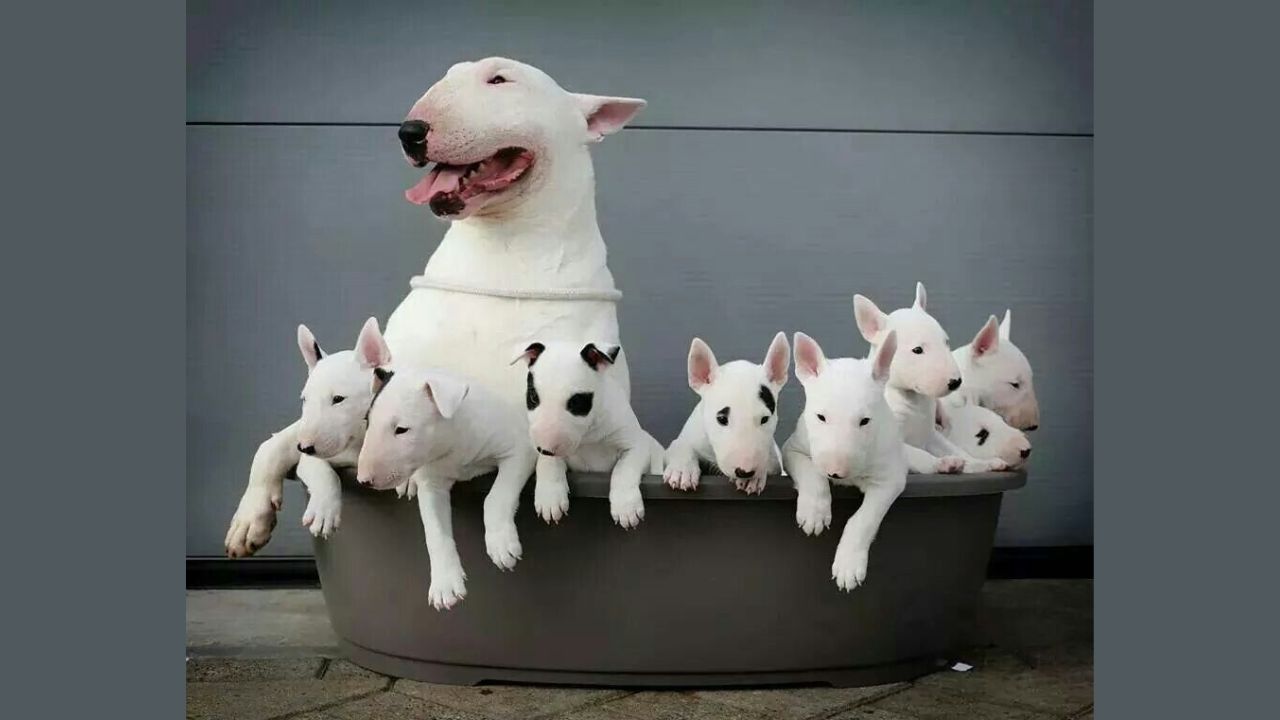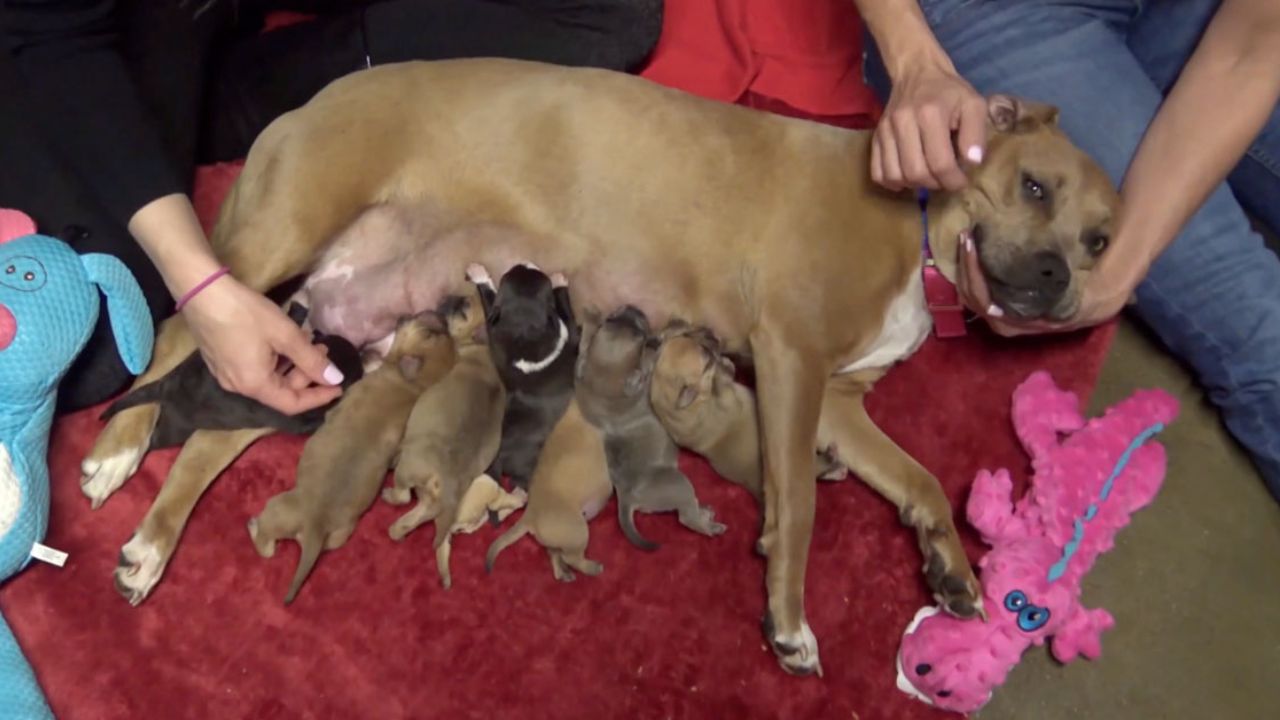Pitbull pups are loving, energetic animals who need constant attention to develop into mature, well-mannered dogs. This comprehensive guide will explore the essential aspects of caring for a pit bull puppy, from setting up a safe environment to addressing breed-specific needs.
Setting Up a Safe Environment
Pitbull puppies are curious, so securing the living space is vital. Creating a secure and nurturing space for your pitbull puppy is paramount, and “Setting Up a Safe Environment” is the cornerstone of responsible pet ownership. This involves meticulously puppy-proofing your home, eliminating hazards that could harm or distract your curious pup.
It extends to selecting a cosy and designated sleeping area, providing them with a safe retreat for rest. A safe environment ensures physical well-being and fosters a sense of security and comfort for your pitbull. By setting up a secure living space, you’re laying the foundation for a happy and healthy relationship between you and your furry companion.
Nutrition For Pitbull Puppy
In the context of pitbull puppy care, nutrition plays a pivotal role in fostering optimal growth, health, and overall well-being. It encompasses the careful selection of appropriate puppy food to meet the unique dietary requirements of this energetic breed.
The term encapsulates a comprehensive understanding of the essential nutrients, including proteins, fats, vitamins, and minerals, crucial for developing strong bones, muscles, and a robust immune system. Pitbull puppies require a well-balanced diet that supports their high energy levels and facilitates healthy coat growth.
Moreover, proper nutrition involves establishing a consistent feeding schedule and practicing portion control to prevent overfeeding, promoting a healthy weight throughout their formative stages. Ultimately, prioritizing nutrition in pitbull puppy care ensures they embark on a journey towards thriving and vibrant adulthood, setting the stage for a joyful life as a cherished companion.
Pitbull Puppy Feeding Chart At A Glance
| Age | Type of Food | Cups a Day | Meals a Day |
| 0 – 30 days | Mother’s Milk | n/a | Not limited |
| 4 – 7 weeks | Mother’s Milk & Softened Kibble | n/a | Not limited |
| 8– 12 weeks | Puppy Food | 2 – 3 | 4 |
| 13 weeks – 26 weeks | Puppy Food | 3 – 4 | 3 – 4 |
| 7 – 15 months | Puppy Food | 4 – 5 | 2 – 3 |
| Adult | Adult Dog Food | 4 – 5 | 2 – 3 |
| Senior | Senior Dog Food | 2 | 2 |
Veterinary Care
A crucial component of maintaining our cherished dogs’ general health and well-being is providing them with veterinary treatment. This specialized field involves providing medical attention, preventive measures, and essential services to maintain the health of animals, including routine check-ups, vaccinations, and emergency interventions.
Veterinarians, trained professionals in veterinary care, play a crucial role in diagnosing and treating illnesses, administering vaccinations, and offering guidance and general pet care. Veterinary treatment addresses medical concerns and highlights the significance of dental hygiene and routine examinations to identify possible difficulties early.
By providing comprehensive medical support, veterinary care contributes significantly to the longevity and happiness of our furry companions.
Pitbull Puppy Vaccination Schedule
| Pitbull Puppy’s Age | Recommended Vaccinations | Optional Vaccinations |
| 6 — 8 weeks | Distemper, parvovirus | Bordetella |
| 10 — 12 weeks | DHPP (vaccines for distemper, adenovirus [hepatitis], parainfluenza, and parvovirus) | Influenza, Leptospirosis, Bordetella, Lyme disease per lifestyle as recommended by veterinarian |
| 16 — 18 weeks | DHPP, Rabies | Influenza, Lyme disease, Leptospirosis, Bordetella per lifestyle |
| 12 — 16 months | DHPP, Rabies | Coronavirus, Leptospirosis, Bordetella, Lyme disease |
| Every 1 — 2 years | DHPP | Influenza, Coronavirus, Leptospirosis, Bordetella, Lyme disease per lifestyle |
| Every 1 — 3 years | Rabies (As required by law) | none |
Exercise and Playtime
How to Take Care of a Pitbull Puppy, engaging in “Exercise and Playtime” is paramount for your pitbull puppy’s holistic development and well-being. This crucial aspect of care involves more than just physical activity; it’s a bonding experience that fosters a strong connection between you and your furry companion. Regular exercise helps burn off excess energy, promoting a healthy weight and reducing the risk of behavioral issues.
Interactive playtime, with toys and stimulating activities, keeps your pitbull physically fit and sharpens its cognitive abilities. Additionally, it provides an outlet for their instincts, preventing boredom and destructive behaviours. By incorporating exercise and playtime into your daily routine, you contribute to a happy, well-adjusted pitbull that thrives physically and emotionally.
Training and Socialization
Training and socialization are fundamental aspects of nurturing a well-rounded and balanced dog, particularly when it comes to breeds like pit bulls. Training involves teaching a dog commands, behaviors, and manners, fostering a strong bond between the owner and the canine companion. This process ensures better communication and establishes a foundation for a disciplined and well-behaved pet.
Socialization exposes the dog to various environments, people, and animals. It helps them adapt to different situations, reducing the likelihood of fear or aggression. For pit bulls, known for their loyalty and intelligence, effective training and socialization are key to promoting positive behavior, preventing behavioral issues, and ensuring they become friendly and confident community members.
Grooming

Pit bulls shed significantly, so on a scale from having no hair on the couch to having to get the vacuum, we have an issue.
Since they are short-haired, single-coated dogs, they periodically shed, particularly when the seasons change.
Every other day, you should get a rubber curry brush and brush your dog. In any case, brush in the direction that hair grows to remove hair that is falling out or dying.
Additionally, by doing this, you’ll aid in the distribution of the natural oils that make your dog’s coat lustrous and healthy.
Health Monitoring
Health monitoring is a proactive approach to safeguarding the well-being of your pitbull puppy. This essential aspect of responsible pet care involves regularly observing your puppy’s behavior, appetite, and physical appearance. You can promptly address health concerns by staying vigilant and recognizing potential signs of illness early on, such as changes in activity levels or unusual behaviors.
Consistent health monitoring and routine veterinary check-ups ensure that your pitbull grows into a robust and thriving adult, enjoying a lifetime of good health and happiness.
Building a Strong Bond
How to Take Care of a Pitbull Puppy, building a strong bond with your pitbull puppy is crucial to responsible pet ownership. This process involves fostering a deep connection through regular, positive interactions. Spending quality time together, engaging in play, and offering affection contribute to developing trust and loyalty.
By incorporating positive reinforcement techniques during training and addressing your puppy’s emotional needs, you establish a foundation for a lifelong, strong bond. This bond not only enhances the overall well-being of your pitbull but also creates a rewarding and fulfilling relationship between you and your furry companion.
Solving Behavioral Issues
Addressing behavioral issues in pets is a crucial aspect of responsible pet ownership. “Solving Behavioral Issues” involves identifying and correcting undesirable animal behaviors and promoting a harmonious relationship between pets and their owners. This process often includes positive reinforcement techniques, consistent training, and understanding the underlying reasons behind the behaviours.
Whether dealing with aggression, excessive barking, or destructive habits, a thoughtful and patient approach is essential to creating a positive and well-adjusted pet. Successful resolution of behavioural issues contributes to a happy and balanced companionship, fostering a bond built on trust and understanding.
Pitbull-Specific Care Tips
Pitbull-specific care tips encompass tailored strategies for nurturing the unique needs of pitbull puppies. Understanding the distinct characteristics of this breed is essential, guiding owners on how to provide optimal care. From recognizing their energetic nature to addressing specific behavioural traits, these tips offer insights into fostering a healthy and happy pitbull.
This specialized guidance covers aspects like training approaches, socialization methods, and individualized care routines, ensuring pitbull owners can create a nurturing environment that aligns with the breed’s distinctive qualities.
Age-Specific Care Guidelines
Age-Specific Care Guidelines refer to tailored instructions and practices designed to meet the evolving needs of a pit bull puppy as it progresses through various life stages. This comprehensive approach recognizes that the care requirements for a young pitbull differ from those of an adult dog.
These guidelines encompass nutrition, exercise, veterinary care, and overall well-being adjustments to ensure the puppy’s health and happiness at each developmental milestone. By adhering to age-specific care guidelines, pitbull owners can proactively address their pet’s changing needs, promoting a lifetime of optimal health and vitality.
However, Finally…How to Be the Best Human for Your Pitbull!
How to Take Care of a Pitbull Puppy, both the happiness and quality of life of an owner’s dog as well as the general perception of the breed will be positively impacted by how they train, socialize, and behave with their American Pitbull, both at home and in public.
Despite any apparent drawbacks, Pitbulls are affectionate, devoted, intelligent, lively, and intelligent dogs that learn well from their training, a strict owner, a peaceful, caring home, and positive reinforcement.
Yes, regular exercise, handling their loud, active character, and setting boundaries for obedience are required, but with a little time and effort, you can have a happy, devoted, and self-assured family dog. Have fun.
FAQ
Are Pit Bulls Easy to Take Care of?
Pitbulls’ low-maintenance, high-energy demeanour can make them an obvious choice for first-time dog owners. Pitbulls don’t need particular training or care, even though they could be a little needy at times. All these puppies need is lots of love, a decent home, and appropriate training.
What Not to Do With a Pitbull Puppy?
Pit bulls are highly energetic dogs who require a lot of exercise and time to go about, thus they typically don’t fit in at off-leash dog parks. Get a puppy instead of a Pit Bull if you enjoy a slow life.
How Do You Handle a Pitbull Puppy?
How to Raise a Pit Bull Dog That Makes a Good House Pet
- Start Socializing Early.
- Use Positive Reinforcement.
- Teach The Right Behavior.
- Consider Certification.
- Advanced Training and Dog Sports.
- Problems and Proofing.
What is Toxic to a Pit Bull?
Pit bulls, like all dogs, have specific dietary needs and restrictions. It’s generally recommended to avoid feeding pit bulls foods such as chocolate, grapes, raisins, onions, garlic, avocado, and foods with high salt or fat levels.
What Do Pit Bulls Like to Eat?
Nutritional Requirements of an American Pitbull Terrier
How to Take Care of a Pitbull Puppy, when selecting what to feed your American bull terrier, choose a diet with high-quality animal-based protein sources, such as beef, chicken, turkey, lamb, duck, eggs, and fish.

